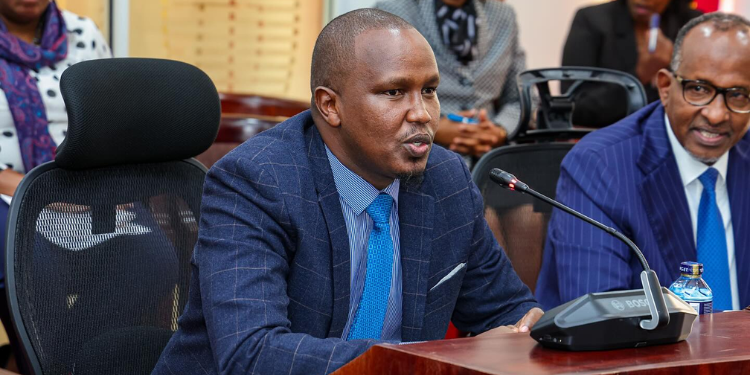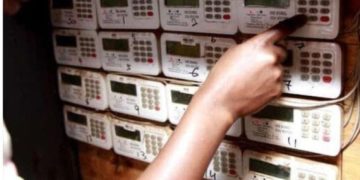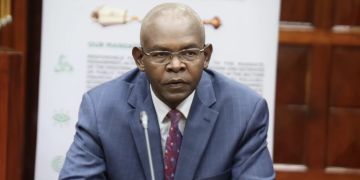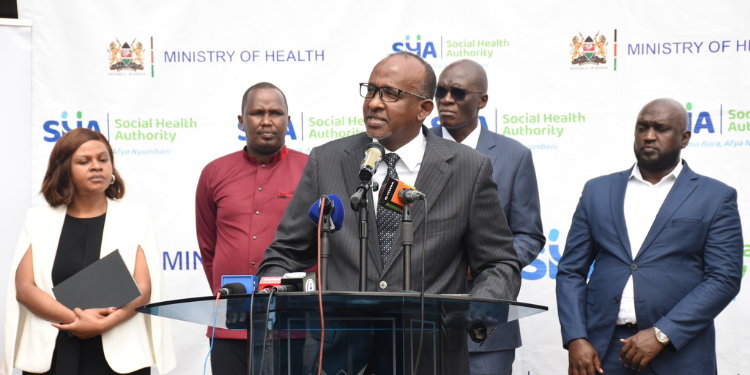One of President William Ruto’s key promises upon assuming office in 2022 was to deliver Universal Health Coverage (UHC) to all Kenyans. To achieve this, the government restructured the healthcare financing system by replacing the National Health Insurance Fund (NHIF) with the Social Health Authority (SHA).
President Ruto has often explained that NHIF was plagued by fraud, false claims, and inefficiencies, which left many Kenyans unable to access healthcare. Reports indicated that up to 40 percent of NHIF funds were lost through fraudulent billing and ghost facilities.
To fix these gaps, the new SHA system was established under the Social Health Insurance Act of 2023. It was designed to be transparent, digital, and resistant to fraud.
“We want to fix the fraud problems of the past. A lot of the money collected by NHIF was stolen by scammers and fraudsters who pretended to have hospitals. Fake and fraudulent claims used up almost 40% of the funds that NHIF was raising. This will not happen again as long as I am President,” Ruto explained the switch to SHA.
DHA System Has Enabled SHA Trace False Claims
As part of the reforms, the government also established the Digital Health Agency (DHA) under the Digital Health Act, 2023. DHA was tasked with creating a centralized, digitally driven healthcare ecosystem to support UHC by addressing inefficiencies and fraud. Effective from November 2, 2023, the agency was mandated to develop and maintain an integrated health information system, as outlined in the Health Act 2017.
DHA ensures secure collection, storage, and exchange of health data while safeguarding patient privacy. By digitizing records, it has improved data quality, patient outcomes, and the efficiency of service delivery.
Its centralized system allows hospitals and policymakers to seamlessly share records and identify anomalies.
Also Read: Duale Submits Files to DCI Amid SHA Scandal Claims
Health Cabinet Secretary Aden Duale has since directed national referral hospitals, SHA, and DHA to formalize strategic partnerships with Centres of Excellence such as Nairobi West Hospital.
He stressed the need for patient-centred, integrated care and the elimination of duplication across healthcare institutions.
Since its inception, DHA has been instrumental in helping the government trace fraudulent SHA claims.
A recent forensic audit flagged suspicious activities, leading to the suspension of 40 health facilities accused of upcoding, falsifying records, inflating invoices, duplicate billing, and registering ghost patients.
Duale Submits 1,188 Fraud Investigation Files to DCI
The crackdown expanded when 31 private hospitals were suspended for submitting false patient data, staging ghost admissions, inflating bed capacities, and misusing pre-authorization codes.
Soon after, the government closed another 35 facilities across the country due to duplicate claims and fake documents.
By August 2025, the Ministry of Health reported that, working with SHA and other agencies, it had closed 983 non-compliant health facilities, downgraded 487 others, and eliminated more than 3 million fraudulent entries inherited from the legacy NHIF system.
Also Read: Duale Suspends 40 Hospitals With Immediate Effect
In early September 2025, SHA submitted 1,188 fraud investigation files to the Directorate of Criminal Investigations (DCI) and suspended 85 facilities pending further action. In the same period, SHA rejected claims worth Ksh 10.6 billion, placed Ksh 3 billion under review, and flagged Ksh 2.1 billion for closer scrutiny.
The fraudulent practices identified included upcoding, falsified records, ghost billing, and converting outpatient cases into inpatient ones.
Follow our WhatsApp Channel and X Account for real-time news updates.





![Govt Moves To Allay Fears Over 1.1 Million Grade 9 Learners Placement Crisis Bitok Releases All 2026 Academic Term Dates [Full List]]( https://thekenyatimescdn-ese7d3e7ghdnbfa9.z01.azurefd.net/prodimages/uploads/2025/09/ps-bitok-cs-ogamba-360x180.png)




































































![Govt Moves To Allay Fears Over 1.1 Million Grade 9 Learners Placement Crisis Bitok Releases All 2026 Academic Term Dates [Full List]]( https://thekenyatimescdn-ese7d3e7ghdnbfa9.z01.azurefd.net/prodimages/uploads/2025/09/ps-bitok-cs-ogamba-120x86.png)